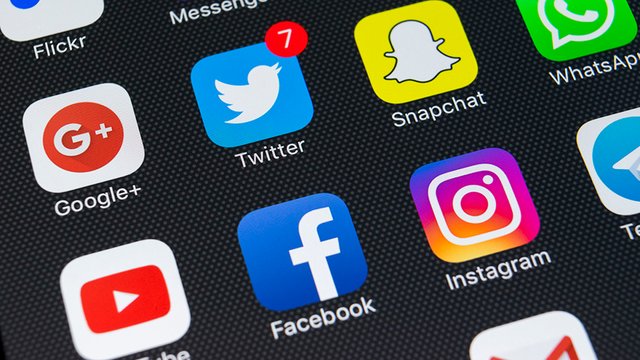The law of conservation of social media consumption, which I created, simply says that folks who are given to wasting their lives on social media will always find a social media avenue to do so! That is, ban TikTok, and its 650 million users will move on to other platforms, such as Facebook or Instagram. Ban Facebook, and folks will explore WeChat.
This law is kind of universal, in the sense that it applies to people in different countries of the world. The law has the curious corollary that no social media platform is indispensable. The country of India banned TikTok barely a week ago. Guess what? Other platforms are competing fiercely to prevent a void.
The COVID-19 pandemic lockdowns have freed people from many activities, making available a huge chunk of time every day, that people can use discretionarily.
While adults (folks 25 years and older by my yardstick) should be able to make judicious decisions as to how to utilize the extra time that the pandemic lockdowns have created, it could be a different story for adolescents, or people under 25 years of age.
Will they use this time to improve themselves intellectually by reading voraciously, studying, taking on meaningful challenges and meaningful activities, or are they going to waste their lives on social media? Sadly, many young adults are putting their “investments” on Facebook, Instagram, TikTok, WeChat, and a host of other social media outlets.
In social media, the only people that win are the owners of the platform, and they will do whatever they have to in order to get people hooked. It’s all about the money. When these companies say they care about their users, they do so to the extent that the bottom line is boosted.
Why else will Facebook refuse to take on users posting utterly racist contents, or check the president of the US, Mr. Donald J. Trump, on his extremities on Facebook, the way Twitter has boldly done? Simple. In terms of followers on Facebook, Mr. Trump is ranked No. 1 (with India’s Prime Minister Narendra Modi as No. 2) – at least as of a few months ago.
Facebook does not want to lose the economic benefits associated with this landscape. So, whatever the president of the US says on Facebook, no matter how horrendous, Mr. Mark Zuckerberg will kindly look the other way.
As for Modi, Facebook has approximately 200 million users in India, which Facebook will guard very ferociously. This is one of the sad aspects of misguided capitalism.
The financial motive behind Facebook’s disposition reminds me of the time that IBM sold its Lenovo business division to China (on 1 May 2005), disregarding any considerations of patriotism. (From 2005 to 2015, Lenovo China was the No. 1 PC player in the world, and the acquisition is one of the major propellers of China’s technology.)
Besides financial gains, Zuckerberg is aware of how hard Mr. Trump can come down on Facebook; so there may be existential fears of the company on the part of Zuckerberg, who apparently doesn’t have the backbone to take on the US president, even though the president may be behaving very badly.
International online retail giant Amazon on 9 July 2020 ordered all its 935,400 employees to uninstall TikTok mobile app from the smartphones they use to access Amazon’s internal email services. Workers had until 10 July 2020 to comply with the order.
Security reasons is cited for this action: “Due to security risk, the TikTok app is no longer permitted on mobile devices that access Amazon email. If you have TikTok on your device, you must remove it by 10-Jul to retain mobile access to Amazon email. At this time, using TikTok from your Amazon laptop browser is allowed.”
The risk is associated with the relationship that the app developer ByteDance has with China: ByteDance is based in Beijing, China. Moreover, privacy and security experts have accused the TikTok app of collecting extensive amount of user information from devices.
Also, the US Secretary of State, Mr. Mike Pompeo, said on 6 July 2020 that “the United States is looking at banning Chinese social media apps, including TikTok.” Since last year, TikTok has been banned by the US military, the Indian government, and Australia is also looking into banning the app as well.
TikTok, a Chinese company where people share very short videos, competes with the likes of WhatsApp, YouTube, and Instagram in terms of the downloads. These are the domicile of young adults during COVID-19 lockdowns.
As per the law of conservation of social media consumption, TikTok’s loss is every other social media platform’s gain, as TikTok’s influencers will more likely be actively promoting other social media channels – such as Facebook and Instagram.
Moreover, according to techcrunch.com on 9 July 2020, “Facebook will be ready, seemingly. Yesterday in India, Instagram rolled out a video-sharing feature called Reels to fill the void left by TikTok that will otherwise be filled by a different and popular video app in India called Triller, which is based in New York.” This certainly helps validate the conservation law, as long as there are young adults out there who are willing to waste their lives on social media platforms.

 Join Daily Trust WhatsApp Community For Quick Access To News and Happenings Around You.
Join Daily Trust WhatsApp Community For Quick Access To News and Happenings Around You.


